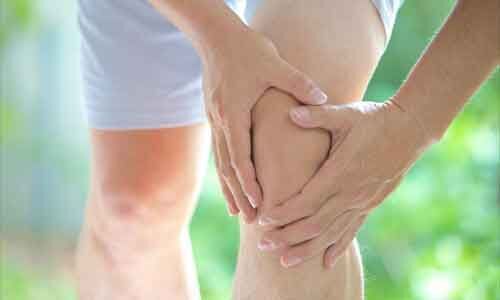- Home
- Medical news & Guidelines
- Anesthesiology
- Cardiology and CTVS
- Critical Care
- Dentistry
- Dermatology
- Diabetes and Endocrinology
- ENT
- Gastroenterology
- Medicine
- Nephrology
- Neurology
- Obstretics-Gynaecology
- Oncology
- Ophthalmology
- Orthopaedics
- Pediatrics-Neonatology
- Psychiatry
- Pulmonology
- Radiology
- Surgery
- Urology
- Laboratory Medicine
- Diet
- Nursing
- Paramedical
- Physiotherapy
- Health news
- Fact Check
- Bone Health Fact Check
- Brain Health Fact Check
- Cancer Related Fact Check
- Child Care Fact Check
- Dental and oral health fact check
- Diabetes and metabolic health fact check
- Diet and Nutrition Fact Check
- Eye and ENT Care Fact Check
- Fitness fact check
- Gut health fact check
- Heart health fact check
- Kidney health fact check
- Medical education fact check
- Men's health fact check
- Respiratory fact check
- Skin and hair care fact check
- Vaccine and Immunization fact check
- Women's health fact check
- AYUSH
- State News
- Andaman and Nicobar Islands
- Andhra Pradesh
- Arunachal Pradesh
- Assam
- Bihar
- Chandigarh
- Chattisgarh
- Dadra and Nagar Haveli
- Daman and Diu
- Delhi
- Goa
- Gujarat
- Haryana
- Himachal Pradesh
- Jammu & Kashmir
- Jharkhand
- Karnataka
- Kerala
- Ladakh
- Lakshadweep
- Madhya Pradesh
- Maharashtra
- Manipur
- Meghalaya
- Mizoram
- Nagaland
- Odisha
- Puducherry
- Punjab
- Rajasthan
- Sikkim
- Tamil Nadu
- Telangana
- Tripura
- Uttar Pradesh
- Uttrakhand
- West Bengal
- Medical Education
- Industry
Hip strengthening exercises improve outcome in knee osteoarthritis patients

A recent study by Dias Tina Thomas and colleagues shows strong support for the practice of hip abductor muscle strengthening exercises as a rehabilitation therapy for patients with knee osteoarthritis. The findings of this study were published in BMC Musculoskeletal Disorders.
Knee osteoarthritis is one of the main causes of disability worldwide. Hip abductor activation and strength are connected to joint loading and progression during weight-bearing exercises and are crucial for maintaining postural balance during transfers. Lack of force production from the lower extremities may result from weak hip abductors, placing stress on the medial tibiofemoral joint. The purpose of this study was to evaluate the impact of strengthening the hip abductor on knee joint loading, knee pain, and functional outcome measures in individuals with knee osteoarthritis.
Through identify the trials published in English from the beginning to December 2020, databases including PubMed, Scopus, EMBASE, the Cochrane Central Register of Controlled Trials (CENTRAL) database, and PEDro were examined. Included were randomized controlled trials that looked at how strengthening the hip abductor muscles affected knee joint loading, knee pain, and functional end measures in people with osteoarthritis of the knee. For the meta-analysis and creation of the forest plots, RevMan 5.4 was employed. Using the PEDro scale, the listed studies' quality was evaluated.
The key findings of this study were:
29 full-text articles were selected from the 260 hits that the search returned.
Seven randomized controlled trials were included in the review, and three studies with excellent methodological quality were considered for the meta-analysis.
The hip abductor strengthening intervention was preferred above the control group in the articles' meta-analysis.
Hip abductor strengthening substantially improved the WOMAC scores and decreased the VAS at 95% confidence interval. Strengthening the hip abductor muscle had a favorable effect on knee pain and functional results, according to all of the included trials.
In conclusion, the results of this review have helped to clarify the role, significance, and effects of hip abductor strengthening in people with knee osteoarthritis.
Reference:
Thomas, D. T., R, S., Prabhakar, A. J., Dineshbhai, P. V., & Eapen, C. (2022). Hip abductor strengthening in patients diagnosed with knee osteoarthritis – a systematic review and meta-analysis. In BMC Musculoskeletal Disorders (Vol. 23, Issue 1). Springer Science and Business Media LLC. https://doi.org/10.1186/s12891-022-05557-6
Neuroscience Masters graduate
Jacinthlyn Sylvia, a Neuroscience Master's graduate from Chennai has worked extensively in deciphering the neurobiology of cognition and motor control in aging. She also has spread-out exposure to Neurosurgery from her Bachelor’s. She is currently involved in active Neuro-Oncology research. She is an upcoming neuroscientist with a fiery passion for writing. Her news cover at Medical Dialogues feature recent discoveries and updates from the healthcare and biomedical research fields. She can be reached at editorial@medicaldialogues.in
Dr Kamal Kant Kohli-MBBS, DTCD- a chest specialist with more than 30 years of practice and a flair for writing clinical articles, Dr Kamal Kant Kohli joined Medical Dialogues as a Chief Editor of Medical News. Besides writing articles, as an editor, he proofreads and verifies all the medical content published on Medical Dialogues including those coming from journals, studies,medical conferences,guidelines etc. Email: drkohli@medicaldialogues.in. Contact no. 011-43720751


